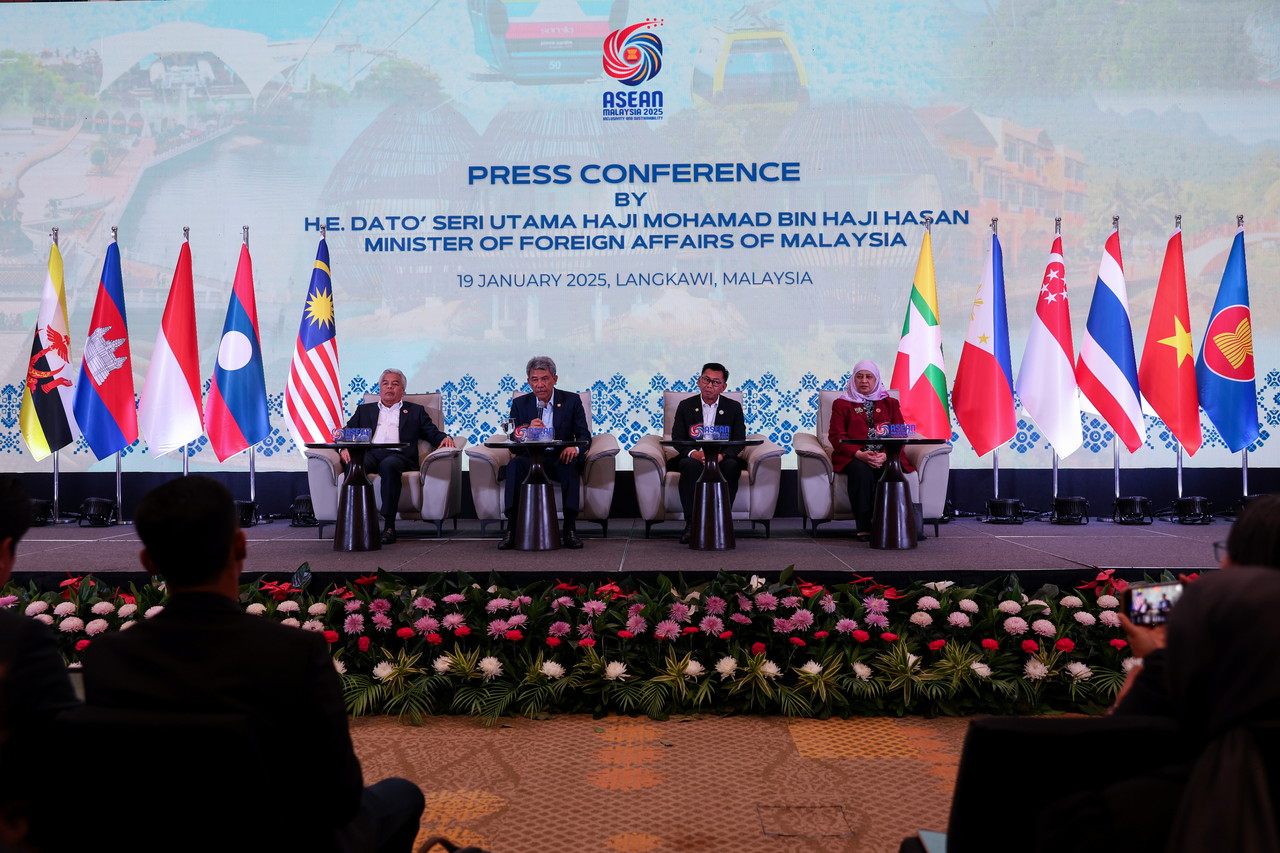KUALA LUMPUR – Malaysia is taking a leading role in addressing the growing crisis of job scam syndicates in Southeast Asia, with the government committed to resolving the issue through regional cooperation within Asean.
As Asean Chair this year, has made tackling the issue a priority, aiming to protect its citizens and others from falling prey to these exploitative operations amid citizens recently rescued from a notorious scam network in Myanmar revealing the abuse they endured – including electrocution, beatings, and forced labour.
Deputy Foreign Minister Datuk Mohamad Alamin confirmed the matter was discussed during the Asean Foreign Ministers’ Retreat in Langkawi and will continue to be a focal point throughout Malaysia’s Asean chairmanship. Malaysia is also collaborating with Aseanapol, the Asean police organisation, to strengthen cooperation among member states in combating fraud syndicates.
“We know this issue has been raised previously in Labuan Bajo, Indonesia, and later in Vientiane, Laos. We will continue to bring it forward this year,” he said during a question-and-answer session in the Dewan Rakyat today.
Mohamad was replying to a supplementary question from Datuk Mohd Isam Mohd Isa (Tampin-BN) on whether Malaysia, as Asean Chair, would address the issue of job scam syndicates.
Recently, scam victims Teo, Shahdan, and Ong shared their ordeal with Bernama as they were among 15 Malaysians rescued from the network and part of the 261 foreign nationals freed by Myanmar authorities. The victims are currently in Thailand after being transferred for deportation, where the Malaysian Embassy is working to facilitate their repatriation.
Teo, a 45-year-old from Johor, was lured by a Facebook advertisement for a translation job in Thailand with a salary of RM7,000. However, his journey turned into a nightmare after arriving in Bangkok in August 2023.
“I was electrocuted more than 10 times and tortured almost every week,” Teo told Bernama. After being smuggled into Myanmar, Teo was coerced into working for a scam syndicate. Over the next 16 months, he was forced to work 14-hour days, sorting phone numbers for fraud operations. His only compensation was a meagre living allowance, while those who failed to meet quotas faced brutal punishment.
Shahdan, 29, from Kuala Lumpur, shared his experience. Despite relying on crutches after a leg amputation, he was forced to engage with at least 70 people daily on social media.
“They electrocuted and caned me when I failed to meet targets,” he recounted. Victims were restricted in their use of mobile phones, allowed only 30 minutes per month, with all communications monitored by supervisors.
The youngest victim, 19-year-old Ong from Penang, was deceived by a man claiming to be Taiwanese, who promised her a well-paying job. She was transported to Myanmar in October 2023 without travel documents and subjected to the same abuse.
“We would be punished with caning, forced to do push-ups, or confined in a dark room for failing to meet targets,” she said.
‘Dirty money financing junta’
In light of these issues, former Thai Prime Minister Thaksin Shinawatra revealed the regional implications of the scams. Speaking exclusively to Bernama, Thaksin explained that the illicit funds generated by these syndicates were fueling Myanmar’s ongoing civil conflict.
“It is this dirty money that is financing the fighting between the Myanmar junta and the many factions,” he said. Thaksin also highlighted Thailand’s efforts to disrupt the operations by cutting off electricity, internet, and fuel supplies to several border towns in Myanmar.
His daughter, Thai Prime Minister Paetongtarn Shinawatra, has committed to further collaboration with neighbouring countries, including China, to combat these criminal activities.

Thailand has taken actions such as shutting down illicit businesses and expelling Chinese companies involved in scams. It is also working closely with Chinese authorities to dismantle the call centre gangs operating across the region.
Meanwhile, the Chinese Embassy in Myanmar issued a statement today confirming that China and Myanmar have intensified their discussions on law enforcement and security cooperation to combat cross-border crimes, including telecom and online fraud, as well as human trafficking.
The Chinese side praised Myanmar’s commitment to combat these crimes and expressed readiness to engage in bilateral and multilateral cooperation with neighbouring countries such as Myanmar and Thailand.
China’s focus is on addressing both the root causes and symptoms of these transnational crimes to ensure the safety of citizens and regional stability. – February 17, 2025

